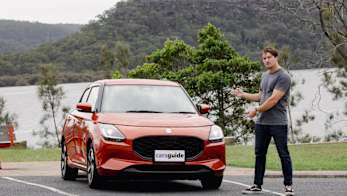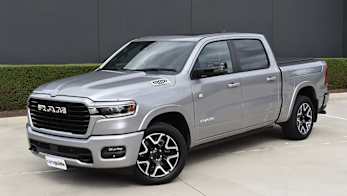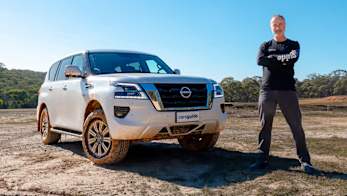BMW has done what few other carmakers have achieved.
It has performed a successful test on the road with an electric car powered by revolutionary solid-state batteries.
These next-generation cells are smaller, lighter and more energy dense than current batteries.
That means you get more range than current machines but do away with inefficiencies such as the massive weight of modern day EVs.
Solid-state batteries use a solid electrolyte instead of a gel or liquid used in current batteries, which is said to deliver faster charging while reducing heat fluctuations and making them less prone to fire.
The game-changing battery tech has been added to a BMW i7 that is operating in Munich, with the futuristic cells co-developed by BMW and Solid Power.
Solid Power’s boss, John Van Scoter, said the company was extremely proud of its first demonstration of truly all-solid-state battery cells (ASSB) in a vehicle.
.jpg)
“We believe in the promise of ASSB’s and continue to drive innovation of our sulfide electrolyte in support of that future for EVs,” said Van Scoter
BMW is aiming to learn about how the cells behave in the real world and it will operate a solid cell prototype line to further its research and development with Solid Power.
This test follows on from Mercedes-Benz performing a similar experiment in an EQS prototype with solid-state batteries developed by US company Factorial.
.jpg)
Mercedes-Benz said its test showed the battery boosts range by 25 per cent compared to current batteries, but it is just the first step towards solid-state batteries that boost range by 80 per cent compared to current lithium-ion batteries.
Chinese carmakers have made a lot of noise about electric cars powered by solid-state batteries, but have yet to go as far as putting prototypes on the road. Instead they are claiming on sale dates of vehicles fitted with the tech as early as 2026.
Japanese giants Toyota and Honda, along with the struggling Nissan, are committed to bringing the tech online by 2027 or 2028.
.jpg)
.jpg)


.jpg)
.jpg)
.jpg)
_0.jpg)

.jpg)
.jpg)



.jpg)

.jpg)
.jpg)
.jpg)

.jpg)


